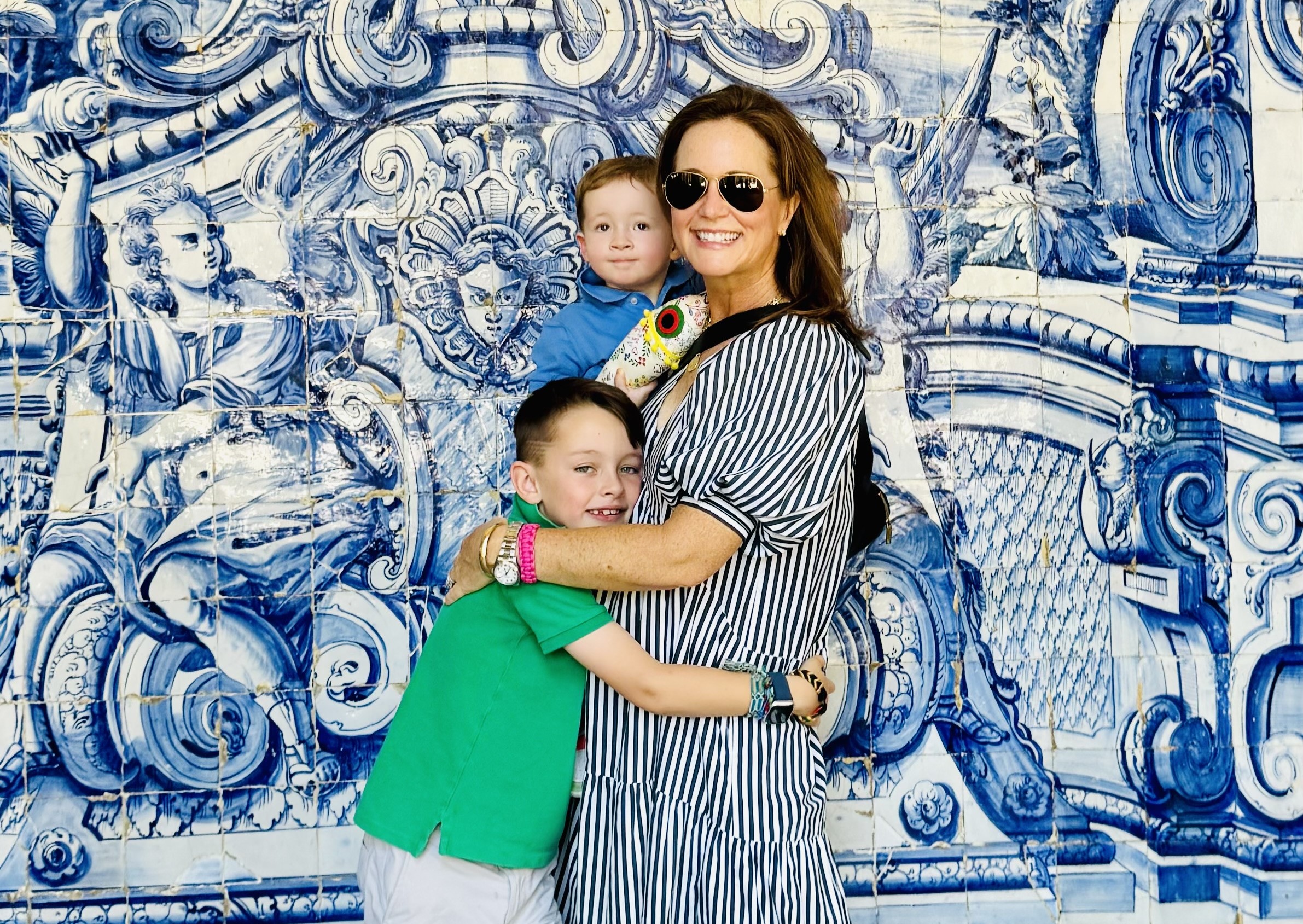What propels success? Is it hard work? Unwavering commitment? Boundless ambition? Yes, it’s all of these things. But when I reflect on my success—both professionally and personally—I realize there’s one imperative that fueled my confidence, fearlessly spoke the truth, and stood by me unconditionally. That secret sauce is my network.
This isn’t just a collection of contacts; this is my lifeline. These are the ones who have cheered me on during victories, supported me during setbacks, and nudged me toward growth. They aren’t afraid to say, “Hey, you’ve got this,” or gently point out where I could improve.
So, why is having a network so important to our success? Networks connect us to opportunities—whether it’s a job lead, a mentorship, or a friendship that sparks creativity. They provide a safety net when we take risks, remind us that you can do hard things, and serve as a compass when we’re lost. They challenge us to be better, and that’s where growth happens.
The Art of Building a Purposeful Inner Circle
Sure, there are many publications that advise against eating alone, encourage working the room in large crowds, and emphasize the importance of mentors; I must admit that I haven’t gotten through reading many of these books. During business trips, you’ll likely spot me enjoying a solo meal (I cherish my moments of solitude). Don’t expect to find me mingling throughout networking events either, as I am a bit of an introvert. As for coaching, I’m not one to engage in surface-level conversations; I prefer candid discussions that challenge me. I find myself gravitating back to a small group of people whose genuine interest, tough feedback, and encouragement propelled me to up my game to shine.
When you hear that my rolodex isn’t at capacity, you might say I am not stellar at networking. However, I would advocate that I am a deliberate networker; I keep the right people close and tap into what they offer when I need it. I also lean into their needs, creating richer relationships. As I step back and reflect on my network, I realize that the community that surrounds me has had a huge impact on my confidence, my strength, and my ability to tackle obstacles when I face them.
I categorize my network into three distinct categories:
- The Cheerleaders
- The Caring Critics
- The Unconditional Supporters
The Cheerleaders
Life will throw us curveballs. This is the posse that I didn’t know I needed until I hit bumps along the way or required additional fuel in my tank. This is my group of people who cheer me on without coaching and celebrate my victories without a hint of competition. You know who you are—the friends who send those “atta girl” messages that make me smile, stand taller, and face the next challenge with confidence.
A shining example of this type of squad is my sorority pledge class. About 18 months ago, one of our friends initiated a group text, linking a network of two dozen women from all corners of the United States. We rallied to support and pray for one of our pledge sisters who faced sudden heart failure and ultimately lost her battle. Yet, in her passing, she gifted us something profound: a bond that transcends distance, a crew of cheerleaders who lift each other up.
Over the past few months, our collective strength and mutual admiration have blossomed as we rally around one of my best friends and Godmother to The Mayor and Boom Boom (affectionately known as “Fairy Godmother”). She is courageously battling bi-lateral breast cancer, and every Tuesday when she goes in for treatment, we convene on our group text to shower her with love and positivity. As she completes sixteen rounds of chemotherapy and prepares for radiation and a double mastectomy, even Rocky Balboa’s strength and resilience couldn’t hold a candle to hers. Our Fairy Godmother stands as an unwavering pillar of strength and positivity, inspiring our crew as we support her each week.
Here’s to our Cheerleaders—the ones who lift us up, build our confidence, and sprinkle a little pizzazz into our lives. Whether it’s a high-five during a win or a funny throwback picture to brighten a dull day, they remind us that we’re not alone.
The Caring Critics
For many, this is the most challenging network to build: they aren’t merely well-wishers; these people genuinely contribute to our success. They are the individuals who truly understand our abilities and aspirations. When we excel, they applaud us. But more importantly, when they know we can do better, they step in to coach us toward improvement. I liken this group to a sports team coaching staff who analyze, evaluate, provide developmental feedback, give space for practice, and then motivate us to get on the field for the next game and do even better.
The reason this part of our network is hard to acquire is because it requires each of us to hear and then act on (dare I say it?!) our weaknesses. This means we are each required to face the things we aren’t good at, find a way to improve, allowing us to continuously learn and grow. This means that every sales pitch we give, deliverable we create, or tough email we send will not be received with superficial praise and “great job” pats on the back. Instead, this community speaks to us with candor, and they invest time in our development because they see our potential and they see us responding to their coaching, getting better, and thriving.
The easiest way to create a void in this part of your network is to ignore constructive feedback and cling to the belief that your way is the best and only way. It’s also the fastest route to stagnation and a plateau in your career or personal goals.
So, here’s to the truth-tellers, the challengers, and the growth catalysts—the ones who see our potential and propel us beyond our limits.
The Unconditional Supporters
This group is my family—some are friends who’ve become family—and they all love me unconditionally, imperfections and all. They’re the ones I can be brutally honest and vulnerable with. Even when they witness my weakest moments, they still care and continue to invest in my success.
Denver Nana and Grandma Lizzy hold the most valuable player (MVP) titles on my team of Unconditional Supporters. They’ve spent countless hours listening to me cry and complain when things didn’t go as I anticipated, reminding me that He has a plan (and it’s better than mine). Their guidance is not just comforting but candid: coaching me by offering a different perspective and nudging me toward things in my life I need to change or improve. Reminding me that each step of my journey is dependent on the decisions I make, and the lessons learned from the outcomes of these decisions.
Regardless of how they have seen me, they have always loved and supported me, looking past my imperfections and amplifying my focus on my strengths. To acquire these Unconditional Supporters in your network, it demands that you let your walls down, become vulnerable, and hear (like really hear) what coaching and advice they offer up. Along the way, you will know quickly who to keep in this group because they stick with you regardless of how hard you might push them away.
Here’s to the ones who stand resiliently beside us offering encouragement, even when we stumble.
Celebrating Our Support Systems
As we recognize our different communities and networks, let’s remember that these groups aren’t mutually exclusive. They dance in and out, forming a purposeful choreography, weaving connections across different chapters in life. In moments of triumph, our Cheerleaders cheer louder. When we require growth, our Caring Critics challenge us to evolve. And during adversity, our Unconditional Supporters stand unwavering. It is these networks—flexible, dynamic, and ever-changing—who make up the beautiful web of connection that provides us with the confidence, strength, and courage to do hard things.
Be Your Own Caring Critic
- Do you know who your Cheerleaders are? Have you reciprocated and cheered them on when they needed it?
- Who are the people you go to because you know they will give you the feedback you need to grow? Have you asked them for feedback lately?
- How have you demonstrated vulnerability to seek out your Unconditional Supporters?
- What role do you play for others in your network—Cheerleader, Unconditional Supporter, or Constructive Critic? Is it time for your role to change so that you can help the people around you grow?






